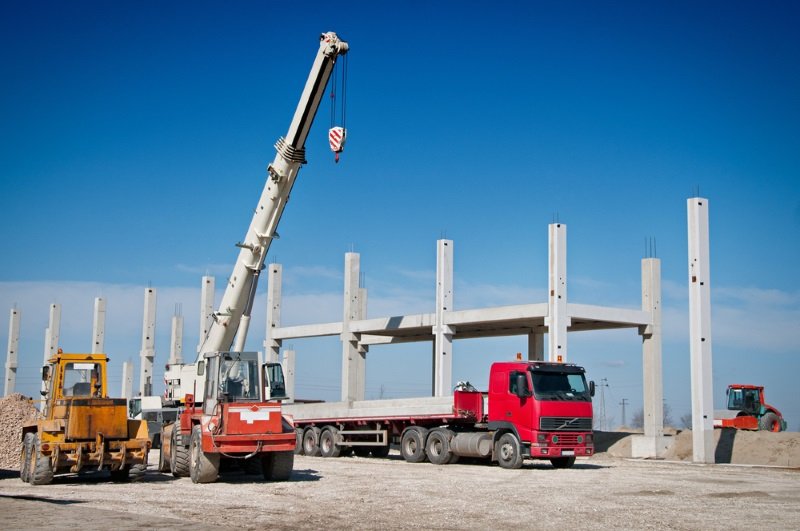Hiring cranes for construction or heavy lifting projects can be a significant investment. However, choosing high-quality cranes and services can lead to substantial savings in the long run. This comprehensive guide will explore various aspects of crane hiring, focusing on how to select the best quality cranes to maximize your investment and minimize costs.
Understanding Crane Types
Before hiring a crane, it’s essential to understand the different types available and their specific applications.
Mobile Cranes
Mobile cranes are versatile and can be moved from one site to another easily. They are suitable for various tasks, from construction to industrial lifting. Common types include:
- Rough Terrain Cranes: Designed for off-road conditions, they have large tires and are equipped to navigate uneven surfaces.
- All-Terrain Cranes: These cranes can travel on and off-road, providing flexibility in various environments.
Tower Cranes
Tower cranes are fixed to the ground and offer significant height and lifting capacity. They are ideal for large construction projects, such as skyscrapers, due to their ability to lift heavy materials to great heights.
Crawler Cranes
Crawler cranes are equipped with tracks instead of wheels, allowing them to move on rough terrain while providing excellent stability. They are particularly useful for heavy lifting in challenging environments.
Jib Cranes
Jib cranes are typically used in warehouses and manufacturing facilities. They are designed for lifting and moving materials within a limited area, making them ideal for tasks that require precision and control.
Assessing Your Project Needs
Before hiring a crane, carefully assess your project’s specific requirements.
Weight and Height Requirements
Understanding the weight of the materials you will be lifting is crucial. Overloading a crane can lead to accidents and costly damages. Accurately calculating:
- Weight of Loads: Use scales to measure the weight of the materials.
- Height of Lift: Consider how high the crane needs to lift the load.
Site Conditions
Evaluate the conditions of the site where the crane will operate. Key factors include:
- Ground Stability: Ensure the ground can support the crane’s weight.
- Space Availability: Assess if there’s enough room for the crane to operate effectively.
- Obstructions: Identify nearby buildings, power lines, or trees that could impede operations.
Importance of Quality in Crane Hire
Investing in high-quality cranes can lead to significant cost savings over time.
Safety Considerations
High-quality cranes are often equipped with advanced safety features, reducing the risk of accidents. Safety should always be a top priority, as accidents can lead to costly delays and liability issues.
Operational Efficiency
Quality cranes tend to operate more efficiently, reducing the time required for lifting tasks. This efficiency translates to lower labor costs and faster project completion.
Longevity and Maintenance
Investing in well-maintained, high-quality cranes can reduce the need for repairs and replacements. Regular maintenance ensures that the equipment operates effectively, prolonging its lifespan and saving you money.
Researching Crane Hire Companies
Finding the right crane hire company is essential for a successful project.
Checking Credentials
Ensure that the crane hire company has the necessary licenses and certifications. This includes:
- Operator Certifications: Verify that operators have valid training and certifications.
- Company Credentials: The hiring company should be licensed and insured.
Reading Reviews
Research customer reviews and testimonials to gauge the reputation of the company. Look for feedback on:
- Service Quality: Evaluate the level of customer service provided.
- Equipment Condition: Ensure the cranes are well-maintained and in good working order.
Comparing Services
Different crane hire companies offer varying services. Compare:
- Types of Cranes Available: Ensure they have the type you need.
- Additional Services: Look for companies that offer transportation, setup, and operator services.
Cost Factors in Crane Hire
Understanding the costs involved in crane hire can help you budget effectively.
Rental Rates
Crane rental rates can vary based on several factors:
- Type of Crane: Different cranes have different rental costs.
- Duration of Hire: Longer hires may offer discounted rates.
Additional Costs
Be aware of additional costs that may arise, including:
- Transportation Fees: Costs associated with delivering the crane to the site.
- Setup and Dismantling Fees: Charges for setting up and taking down the crane.
Insurance and Liability
Confirm what insurance coverage is included in the hire agreement. You may need to purchase additional coverage to protect against potential damages or accidents.
Conclusion
Hiring the best quality cranes hire can lead to significant cost savings and increased efficiency in your projects. By understanding your needs, researching hire companies, and prioritizing safety and compliance, you can ensure a successful crane hire experience. Following the tips outlined in this guide will help you make informed decisions that benefit your project and your budget. Investing time in careful planning and execution will pay off in the long run, allowing you to maximize your investment and minimize costs.



